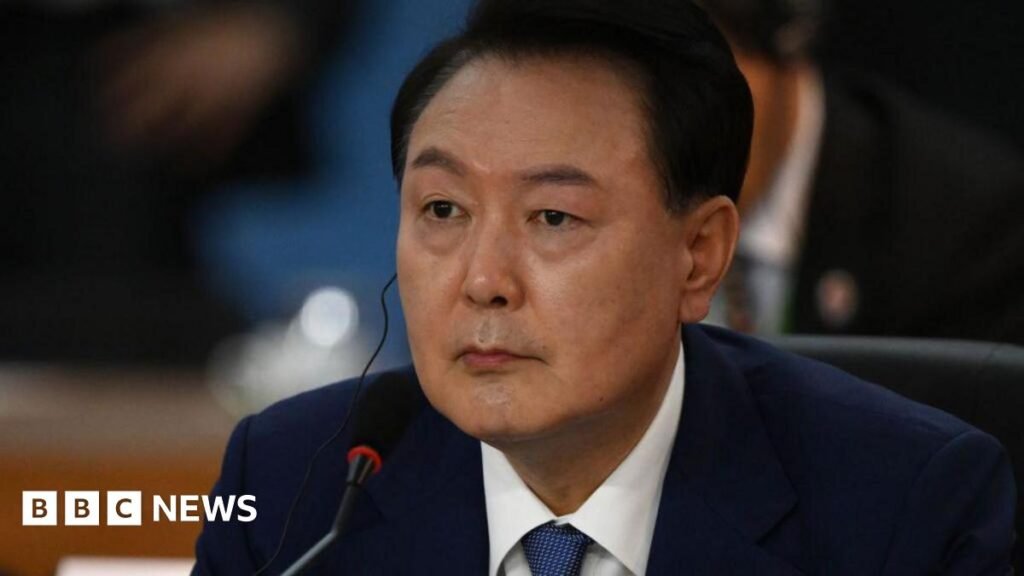Under South Korean law, the court must set a new date for the hearings before they can proceed without him.
The next meeting is scheduled for Thursday.
Yun’s lawyers said he would appear at the hearing at an “appropriate time,” but they challenged the court’s “unilateral decision” on trial dates.
On Tuesday, the court rejected the lawyers’ request to remove one of the eight judges.
Yoon has not commented publicly since parliament voted to impeach him on Dec. 14, speaking mostly through his lawyers.
Investigators are also separately preparing another attempt to arrest Yoon for alleged rebellion after an earlier attempt on Jan. 3 ended in an hours-long standoff with his security team.
Yoon is the first sitting president of South Korea to face arrest. A second attempt to take him into custody may take place this week, local media reported.
The ousted leader has not commented publicly since parliament voted to impeach him on December 14, speaking mostly through his lawyers.
Yun’s short-lived declaration of martial law on December 3 caused political upheaval in South Korea. He tried to justify this attempt by saying that he was protecting the country from “anti-state” forces, but it soon became clear that it was caused by his own political problems.
What followed were an unprecedented few weeks in which the opposition-dominated parliament voted to impeach Yun and then Prime Minister Han Dak-soo, who briefly succeeded him as acting president.
The crisis has hit the country’s economy, causing it to weaken, and global rating agencies are warning of weakening consumer and business sentiment.
Former presidents Roh Moo-hyun and Park Geun-hye did not attend impeachment trials in 2004 and 2017, respectively.
In Park’s case, the first hearing ended after nine minutes in her absence.
Roh was reinstated after a two-month trial, and Park’s impeachment was upheld.

